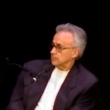Emotional: how feelings shape our thinking
Description
More Details
Also in this Series
Published Reviews
Publisher's Weekly Review
"We can't make decisions, or even think, without being influenced by our emotions," writes physicist Mlodinow (The Drunkard's Walk) in this moving deep dive into the role of feelings in everyday life. Contrary to long-held views that reason and emotion are opposites, Mlodinow shows that a new field called affective neuroscience has demonstrated that "emotion is a gift" which enables humans to "quickly and efficiently make sense of our circumstances so that we can react as necessary." He makes a convincing case that, instead of detracting from intelligence, such responses allow for better decision-making and more effective communication. He offers plenty of colorful examples: Mlodinow's parents, both Holocaust survivors, appear as case studies--each responded to their trauma differently--and illustrate that such responses are a result of "our shadowy unconscious mind" applying lessons from the past. Studies from nature appear, as well: readers will learn that male fruit flies experience sadness and respond to romantic disappointment by drinking alcohol. Mlodinow successfully shows how emotions can be assessed, regulated, and controlled, and powerfully concludes that understanding them is a lifelong project that's "not just a science but an art." This is a must-read for fans of Daniel Kahneman. (Jan.)
Library Journal Review
In Western context at least, emotion has often been seen as the antithesis of rational thinking, something that gets in the way of making good choices. But as suggested in this latest work from Mlodinow, author of the best-selling, PEN/E.O. Wilson award-winning Subliminal, emotion is essential to our well-being and a crucial ingredient in every decision we make. Here he explains the new, research-driven science of feelings.
Kirkus Book Review
Noted physicist and science writer Mlodinow brings an up-to-date view of the neuroscience surrounding emotions. In classical philosophy, emotions were viewed as separate from and opposite to rational thought. The latest view, informed by extensive brain studies, holds that emotions are different from but intimately connected with what we call deliberate thought in the form of decision-making and rational choice. "While rational thought allows us to draw logical conclusions based on our goals and relevant data," Mlodinow writes, "emotion operates at a more abstract level--it affects the importance we assign to the goals and the weight we give to the data." Sometimes it operates by tapping into more ancestral areas of the brain, touching on fight-or-flight instincts: If we hear a rustling in the bushes as we walk by them, is it the wind or a fierce predator? All mammals and many species of insects, Mlodinow writes, experience emotion as a feature of our shared "evolutionary heritage," and the triggers are much the same. We feel our way around our environment, drawing on prior experience and using it as a guide, how we felt then conditioning how we feel now. This is not always healthy, however. Our fearful responses may not apply to every situation, but fear leads us to "assign higher than normal probabilities to alarming possibilities" that we may rationally know not to be so. As the author shows, our emotions are not uniform; some people are "quick to become anxious, while in others anxiety builds slowly," and levels of happiness and sorrow are contingent on many factors. Whatever the instance, Mlodinow encourages readers to take time to better understand their own emotional makeup by developing an "emotional profile" that can lead to heightened self-awareness and, perhaps, even to greater peace of mind. A readable work of popular science that reveals little-known facets of our worried, weary minds. Copyright (c) Kirkus Reviews, used with permission.
Library Journal Reviews
In Western context at least, emotion has often been seen as the antithesis of rational thinking, something that gets in the way of making good choices. But as suggested in this latest work from Mlodinow, author of the best-selling, PEN/E.O. Wilson award-winning Subliminal, emotion is essential to our well-being and a crucial ingredient in every decision we make. Here he explains the new, research-driven science of feelings.
Copyright 2021 Library Journal.LJ Express Reviews
How do emotions guide feelings and shape thinking? In his latest book, physicist Mlodinow (Elastic: Unlocking Your Brain's Ability To Embrace Change) explores what defines emotion, thoughts versus feelings, mind-body connection, and how emotions guide thought (both consciously and unconsciously). He also investigates how the brain constructs emotion, the origin of desire and pleasure in the brain and how they motivate people. Using personal anecdotes and scientific research from neuroscientists, he also tells how emotions create determination and how to manage emotions. The highly readable and thought-provoking book ends with standardized inventory self-tests on how to readers can assess their own emotional profile regarding shame and guilt, anger and aggression, happiness, and romantic love/attachment. This engaging and reader-friendly book proves that emotions are as critical to our well-being as thinking. VERDICT Mlodinow's book, based on current research in neuroscience, also contains clear real-life examples and anecdotes that make his argument accessible to general readers.—Marcia G. Welsh
Copyright 2022 LJExpress.Publishers Weekly Reviews
"We can't make decisions, or even think, without being influenced by our emotions," writes physicist Mlodinow (The Drunkard's Walk) in this moving deep dive into the role of feelings in everyday life. Contrary to long-held views that reason and emotion are opposites, Mlodinow shows that a new field called affective neuroscience has demonstrated that "emotion is a gift" which enables humans to "quickly and efficiently make sense of our circumstances so that we can react as necessary." He makes a convincing case that, instead of detracting from intelligence, such responses allow for better decision-making and more effective communication. He offers plenty of colorful examples: Mlodinow's parents, both Holocaust survivors, appear as case studies—each responded to their trauma differently—and illustrate that such responses are a result of "our shadowy unconscious mind" applying lessons from the past. Studies from nature appear, as well: readers will learn that male fruit flies experience sadness and respond to romantic disappointment by drinking alcohol. Mlodinow successfully shows how emotions can be assessed, regulated, and controlled, and powerfully concludes that understanding them is a lifelong project that's "not just a science but an art." This is a must-read for fans of Daniel Kahneman. (Jan.)
Copyright 2021 Publishers Weekly.





























